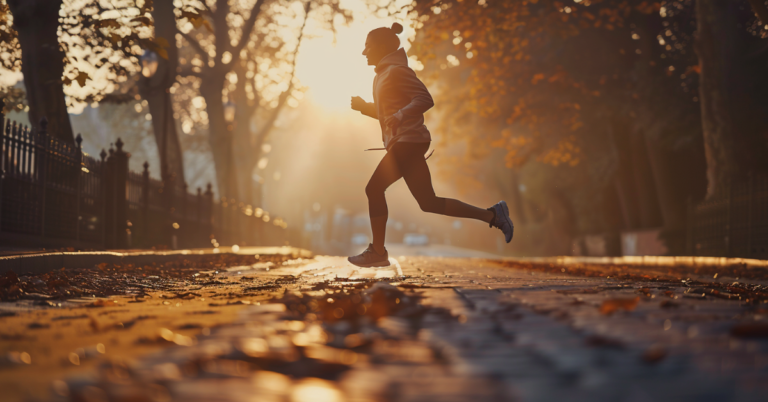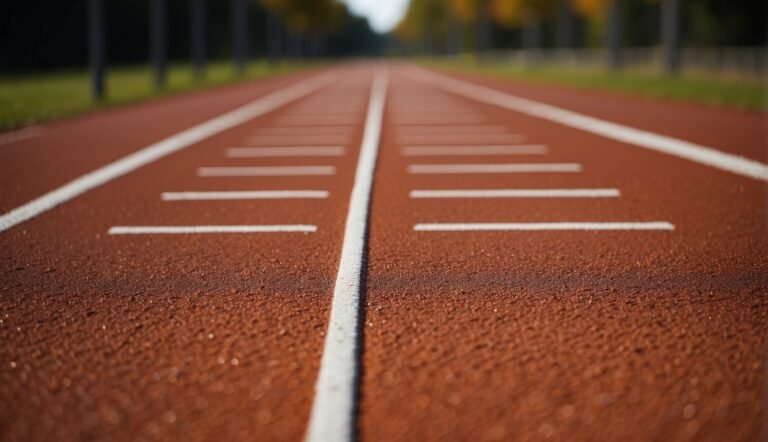📦 FREE Shipping
What to Eat the Night Before a Long Run? (Fueling Strategies for 2024)

I always get a rush of anticipation the night before a long run. It’s not just about the miles I’ll cover but also about fueling my body correctly to achieve peak performance. What to eat the night before a long run? It starts with what’s on my dinner plate. Carbohydrates are my best friends here, as they top off my glycogen stores, ensuring I have the energy I need to power through my run. I go for a good balance of complex carbs like sweet potatoes or pasta, which provide a steady release of energy.

But it’s not just about carbs. I make sure to include lean proteins, too, like chicken or salmon. These aren’t just tasty—they help repair and build my muscles, crucial for recovery after I’ve pushed them to the limit. And let’s not forget the healthy fats! A drizzle of olive oil on my veggies or a slice of avocado with my meal gives me those essential fats that support my overall health.
What’s crucial is that while I’m piling up my plate with these power foods, I keep my digestion in mind. It means no heavy, greasy foods and nothing that’s going to have me searching for the nearest bathroom mid-run. So, I stay away from the deep-dish pizza and keep it balanced, simple, and nutritious. The right meal not only sets the tone for my run but also feels like a celebration of the journey I’ll embark on with the sunrise.
Optimizing Your Pre-Run Dinner
Before you lace up for your long run, setting up the night prior with the right dinner can make all the difference. I’m here to share how you can prime your body with energy while ensuring everything you ingest will fuel your miles without weighing you down.
Balancing Macronutrients for Energy
When I plan my pre-run dinner, I aim for a balance of macronutrients to maximize my energy stores. Carbohydrates, specifically complex carbohydrates, are my primary focus because they stock up glycogen stores, the fuel I’ll tap into the next day. A meal rich in carbs such as whole grain pasta, rice, or sweet potatoes, gives me that sustained energy release. Adequately incorporating proteins is crucial as well, helping repair and build muscles that I’ll depend on. Grilled chicken or salmon are my go-tos for lean protein. And we can’t forget about fats, but choosing the right kind matters. I opt for mono- and polyunsaturated fats like those in avocados or nuts, which are essential but don’t slow me down.
- Carbohydrates (55-65% of meal): Complex carbs like brown rice or quinoa.
- Protein (15-20% of meal): Lean sources like turkey breast or tofu.
- Fat (15-30% of meal): Healthy fats from olive oil or salmon.
Choosing Easily Digestible Foods
I steer clear of foods that could disrupt my digestive system the night before a run. It’s about finding a balance between high-energy foods that are also easy to digest. The aim is for the meal to pass comfortably through my system, avoiding any gastrointestinal discomfort during the run. For me, this means opting for cooked vegetables over raw ones and avoiding heavy, high-fiber, or fatty foods that might linger in my stomach. Some of my favorite easily digestible foods include roasted zucchini, bell peppers, or a moderate serving of pasta with a light sauce.
- Vegetables: Roasted bell peppers and eggplant.
- Grains: A moderate serving of pasta or a piece of sourdough bread.
- Protein: Baked chicken breast or a fillet of white fish.
By focusing on these key points and listening to my body’s responses, I create pre-run dinners that support my energy needs without causing digestive upset. This way, I wake up ready to conquer those miles with vigor!

Selecting the Best Carbs for Fueling
I can’t emphasize enough how crucial it is to fuel up with the right carbs before a long run. Carbs are my powerhouse! They’re my body’s preferred source of energy, and stocking up on high-quality carbs ensures I have enough glycogen stored up to hit my stride and keep going.
Whole Grains for Endurance
I rely on whole grains as they’re fantastic for lasting energy. My go-to choices include:
- Brown rice: Packs more fiber and vitamins than white rice.
- Quinoa: A protein-rich grain that ticks off amino acids too.
- Oatmeal: A classic pre-run meal when I want complex carbs that release energy slowly.
I love whole wheat pasta as an evening meal. It feels hearty and comforting, yet it serves my muscles well with its complex carbs.
Fruits and Vegetables for Nutrients
For a burst of vitamins and antioxidants, fruits and vegetables are my superheroes. They deliver the nutrients I need to keep my body healthy, which is vital for recovery and performance. Here’s a quick list of my favorites:
- Vegetables: Steamed asparagus and grilled veggies like bell peppers cut the fiber just enough to prevent any digestive discomfort while running.
- Fruits: Bananas are my top pick for potassium. I combine them with berries for a dose of antioxidants.
Sweet potatoes are incredibly well-rounded, providing carbs, fiber, and nutrients that are easy on my stomach.
While I prioritize carbs, I balance my meals with a good measure of protein and some healthy fats, but when it comes to fueling up the night before a long distance, carbs from whole grains, fruits, and vegetables are absolutely key!

Incorporating Lean Proteins and Healthy Fats
When I gear up for a long run, my meal strategy is twofold: amp up with lean proteins for muscle repair, and balance them with healthy fats to keep my energy stores primed. It’s a delicious and nutritious way to set the stage for peak performance!
Ideal Protein Sources for Muscle Repair
My muscle maintenance is paramount, especially the night before a long run. Here’s what I reach for:
- Chicken: It’s classic, packed with protein, and wonderfully versatile.
- Fish: I’m talking salmon, tuna, or cod, not only for protein but for those omega-3s as well.
- Eggs: Perfect for breakfast or in a quick stir-fry for dinner, they’re protein gold mines.
I make sure I’m getting enough, but not too much—my golden rule is about the size of my palm.
The Role of Fats in Energy Conservation
Now, fats are my secret weapon:
- Nuts: A handful of almonds or walnuts is an energy bar in its own right.
- Avocado: Creamy goodness that’s full of healthy monounsaturated fats.
- Olive Oil: Just a drizzle on my veggies, and I’ve got both flavor and fuel covered.
By getting the right balance, my glycogen stores say, “Thank you!” which means I may wake up feeling like I’ve already won half the battle.
Hydration and Electrolyte Balance
As an avid runner, I’ve learned that maintaining a proper balance of fluids and electrolytes is as crucial as the fuel I give my body in the form of food. Without this balance, energy levels can plummet, especially during a marathon.
Importance of Water and Electrolytes
Water is the most essential nutrient for life, and it’s incredibly important for marathon runners. It regulates my body temperature, lubricates joints, and helps transport nutrients to give me energy and keep me healthy. If I’m hydrated, my heart also doesn’t have to work as hard. I make sure to keep my water intake high to match my training intensity.
When it comes to electrolytes like sodium, potassium, magnesium, and calcium, they play a critical role in controlling my energy levels and muscle function. Electrolytes help me maintain fluid balance, nerve transmissions, and muscle contractions—a must to prevent cramping during long runs. To maintain electrolyte levels, I often turn to sports drinks, electrolyte-infused waters, or even salt tablets, depending on the race conditions and my personal needs.
- Key Electrolytes:
- Sodium: Maintains fluid balance
- Potassium: Regulates heartbeat and muscle function
- Magnesium: Aids in muscle contractions and energy production
- Calcium: Vital for muscle function and nerve transmission
Avoiding Dehydration Before the Race
Dehydration can be a runner’s downfall, leading to decreased performance and even health risks. I always start hydrating well before the race—not just the night before. In the days leading up to the marathon, increasing my water intake ensures that I start with a good level of hydration. I also monitor the color of my urine to gauge hydration levels; pale yellow is the ideal color I aim for.
It’s crucial to avoid overhydrating as well, which can lead to hyponatremia, a condition where the balance of electrolytes in my body becomes too diluted. Therefore, I carefully plan my hydration strategy, so it’s tailored to my sweat rate and the weather conditions on race day.
- Hydration checkpoints:
- 2-3 days before race: Increase water intake
- Urine color: Pale yellow as an indicator
- Race day: Sip water, don’t gulp to avoid overhydration
By keeping a keen eye on my water intake and ensuring I have a good balance of electrolytes, I set myself up for a successful run where my energy levels are optimized for endurance.
Frequently Asked Questions about What to eat the night before a long run
What should I eat the night before a run?
The night before a long run, focus on eating complex carbohydrates like whole grains, vegetables, and lean proteins. This combination helps to ensure steady energy levels, making what to eat the night before a long run crucial for performance.
What foods to avoid before a long run?
Avoid heavy, fatty foods, high-fiber vegetables, and spicy dishes before a long run. These can cause gastrointestinal discomfort and disrupt energy levels, impacting your run negatively.
Should you eat pasta the night before a race?
Yes, eating pasta the night before a race can be beneficial. Pasta is a great source of complex carbohydrates, providing the stored energy needed for endurance activities. Just keep the sauce light and avoid overly fatty additions.
Can you eat pizza the night before a marathon?
While pizza can be a carb source, it’s often high in fats and processed ingredients, which can lead to discomfort during the marathon. Opting for a meal with simpler, more wholesome ingredients is generally a better choice.
Do you now know the answer to your question: “What to eat the night before a long run”? Make sure to also read about CrossFit Track Workouts or Running Endurance Workouts.





